
FRAMEWORKS FELLOWS
2023-2024 FRAMEWORKS FELLOWS
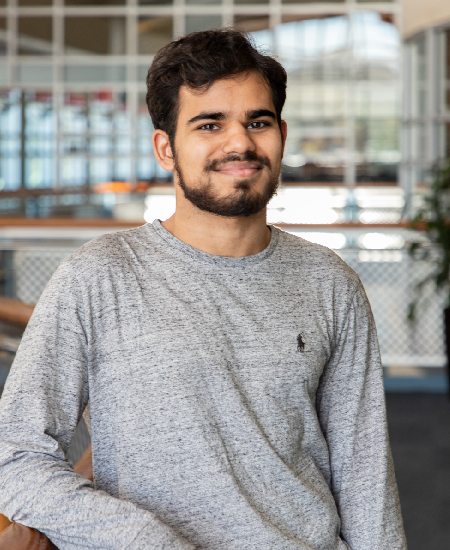
Usman Azim
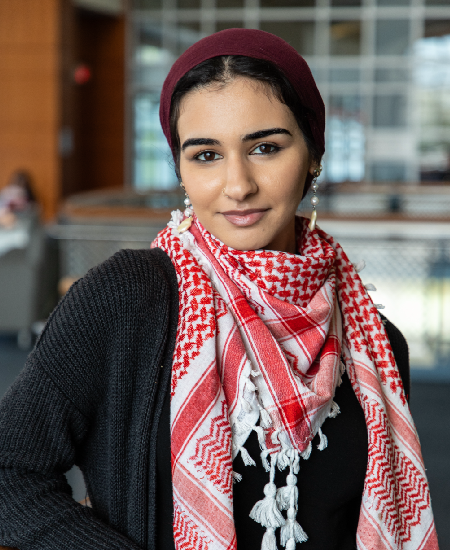
Maryam Azzawi
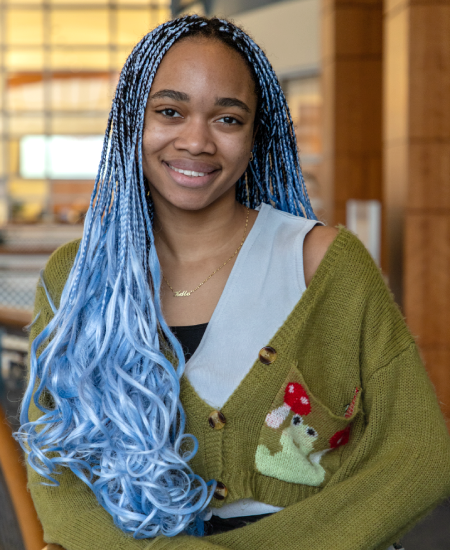
Kadilo Buzugbe
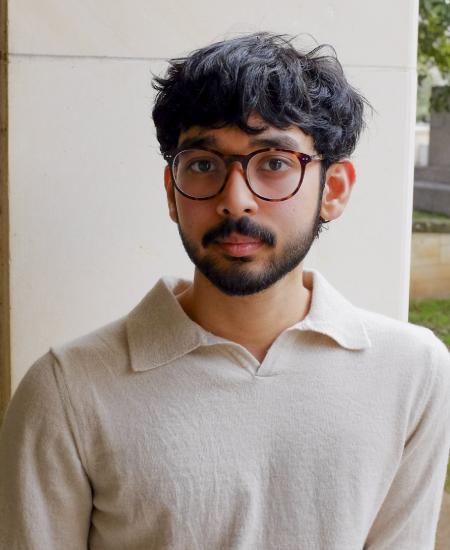
Iyad Chowdhury
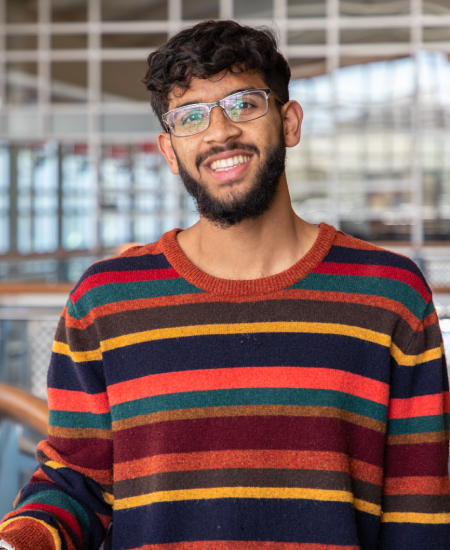
Ibrahim Islam
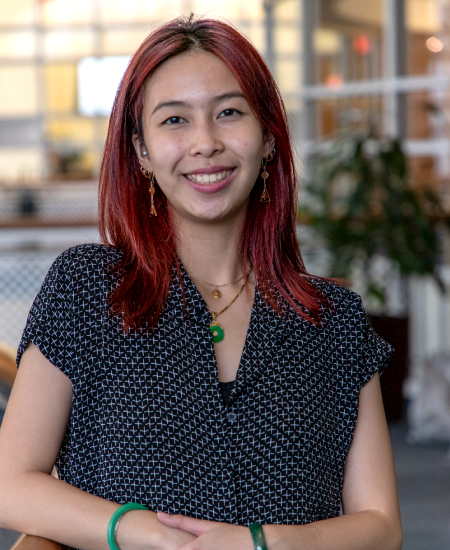
Alice Nguyen
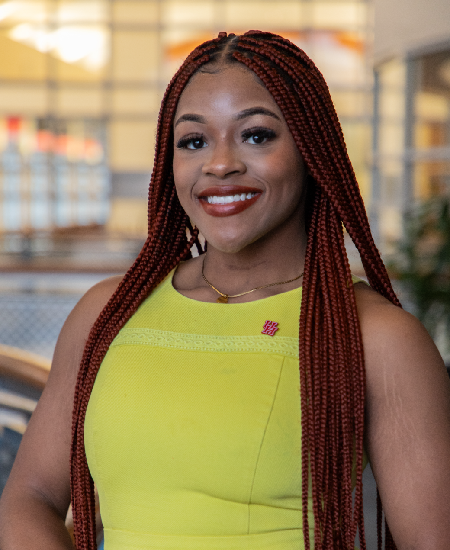
Veronica Nwanna
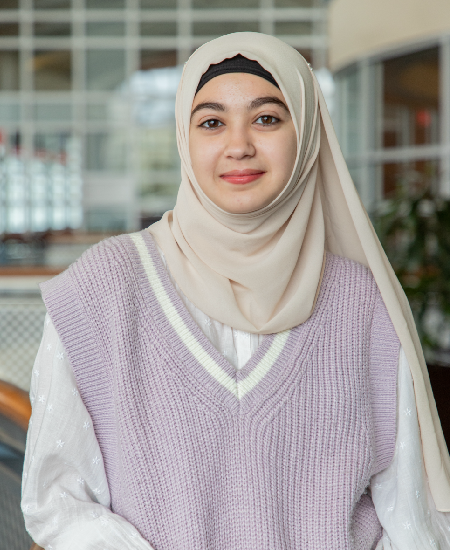
Amna Siddiqui
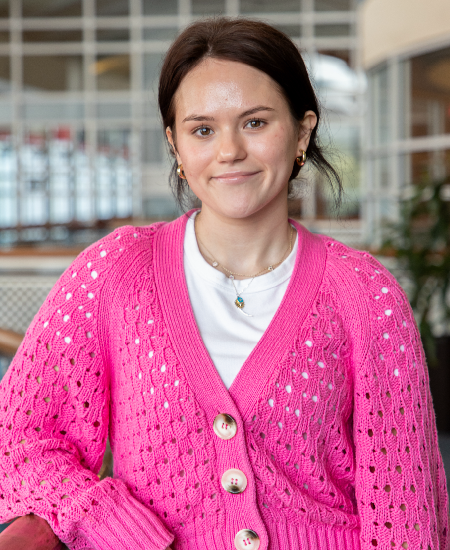
Annfaye Sternberg
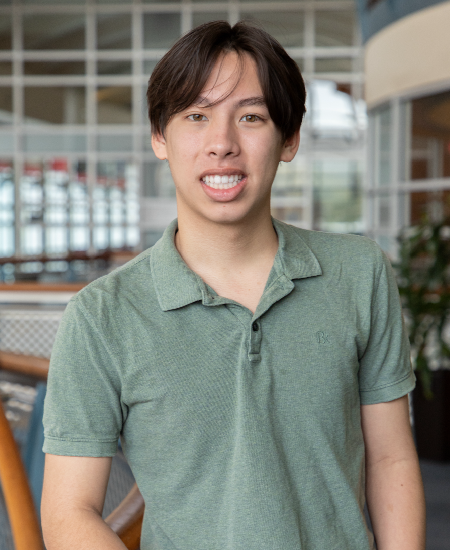
Logan Tantibanchachai
2022-2023 FRAMEWORKS FELLOWS
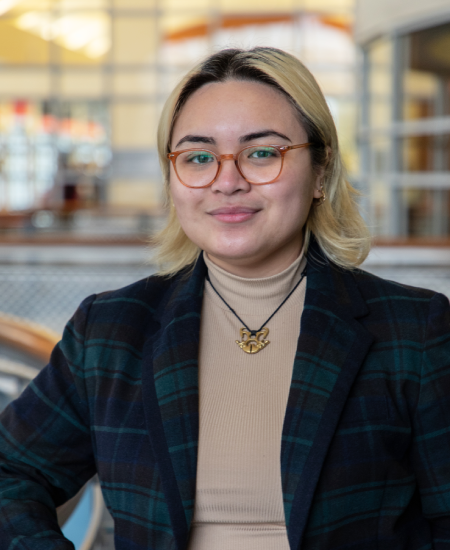
Nine Abad
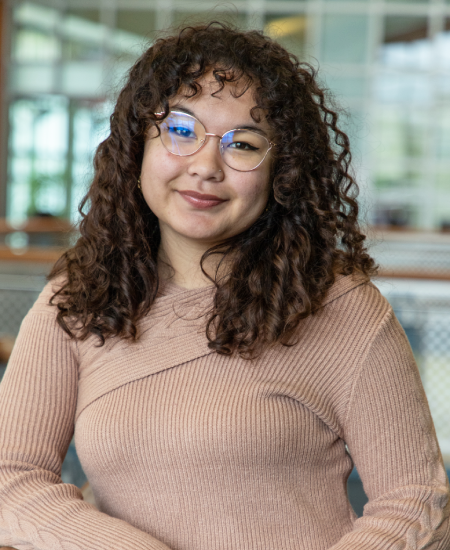
Kalena Holeman
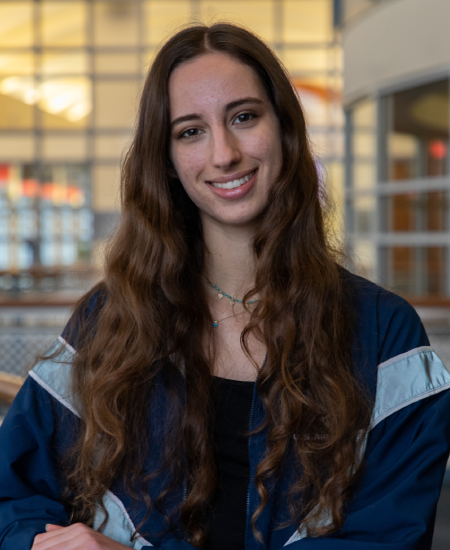
Skyler Houser
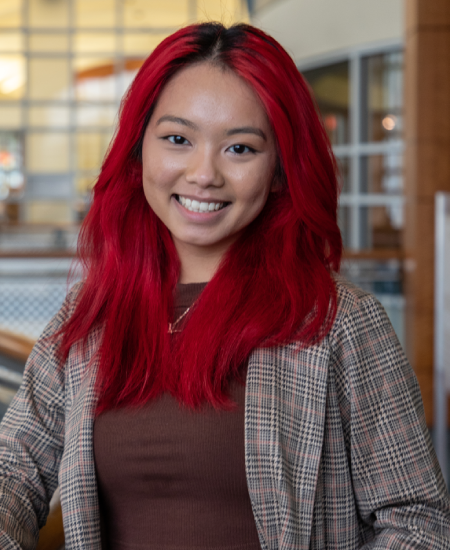
Tuyen Le
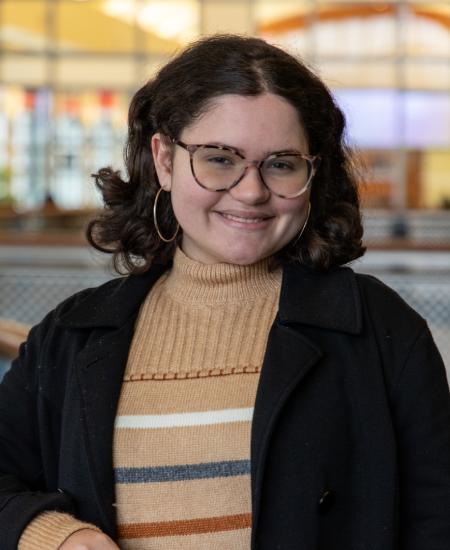
Adriana Lopez Cajigas
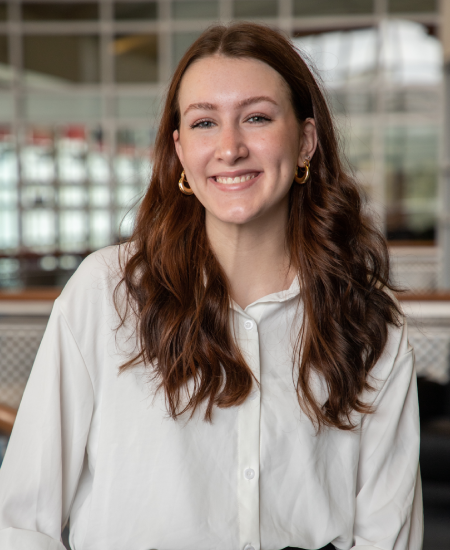
Alivia Mayfield
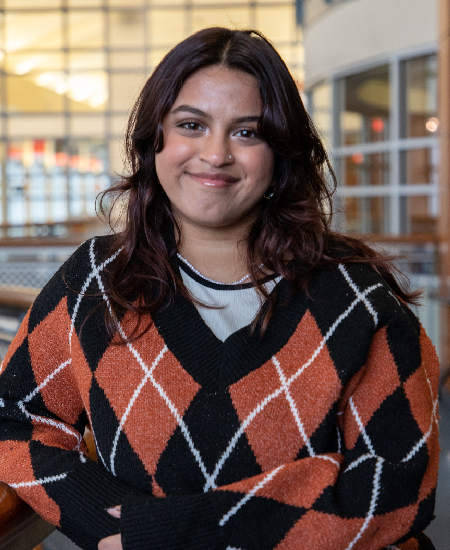
Isha Merchant
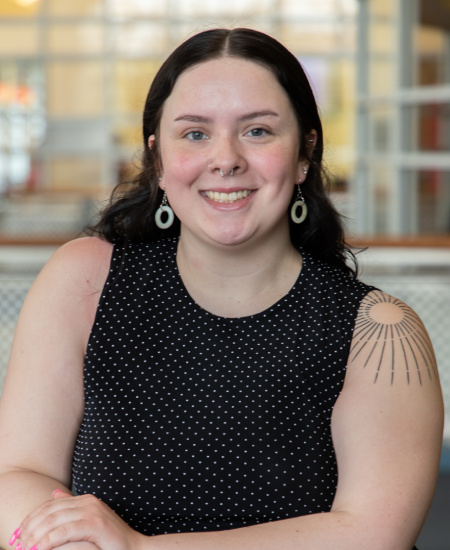
Katerina Munoz
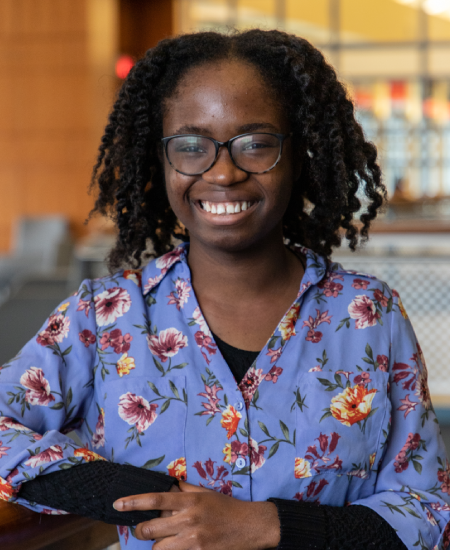
Miracle 'Meneh' Ofomaja
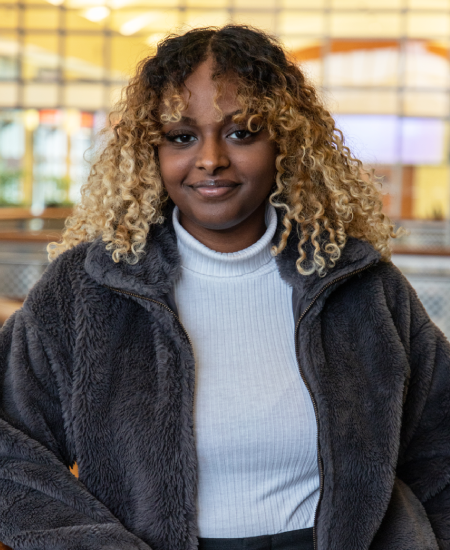
Saron Regassa
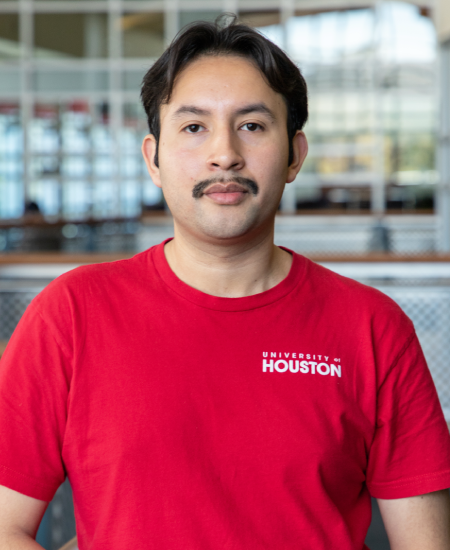
Adolfo Salazar
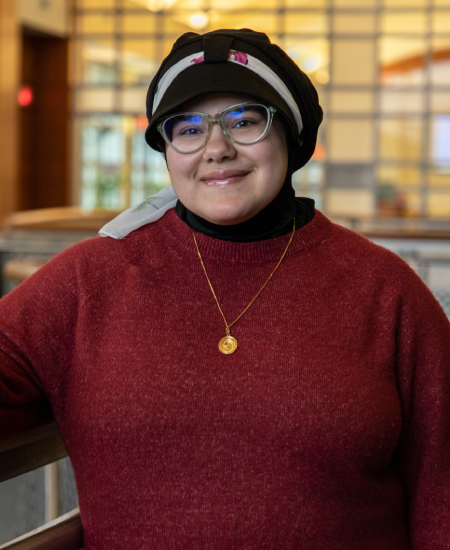
Zainab Tafish
FRAMEWORKS FELLOW PROFILE

Kalena Holeman, Winner of the 2023/2024 FrameWorks Prize for Excellence in Undergraduate Research in the Interdisciplinary Humanities.
By Ayania Hicks
Kalena participated in FrameWorks in her sophomore year. She is undertaking a major in English literature with a Creative Work minor. Her research interests lie in receptions and adaptations of classical texts across the Black diaspora. She is planning to pursue a Ph.D. in English Literature and a career in the academy. She kindly agreed to answer some questions about her FrameWorks experience.
Congratulations on being awarded the FrameWorks Prize. What does winning the award mean to you?
I think even being published in the journal was a testament to everyone’s hard work. I know a lot of time and effort went into researching and writing each article. With that said, I am very grateful to have won the award. I’ve been working on Dante, Walcott, and Ellison since I was a freshman, so this feels like the culmination of more than a year’s worth of thinking, reading, theorizing, and writing. It was a truly rewarding moment!
My article explored allusions to Dante’s Divine Comedy in Ralph Ellison’s Invisible Man and Derek Walcott’s Omeros.
Unusually for a FrameWorks Fellow, you came into the program with an essay already in the works. What sort of state was your article in when the program began, and how did the program help you develop the work?
I entered the program wanting to expand on my final paper for a class taught by Dr. Daniel Davies. Over the year, the core idea remained the same the same, but the end product was drastically different. For one, it doubled in length! I already had a solid idea, but I hadn’t yet managed to put into words why I wanted to read Dante, Walcott, and Ellison together – the bigger picture, if you will. I used my time in FrameWorks to read extensively in the scholarly fields I was operating within. These texts helped me better articulate many of the thoughts only beginning to come together in my original paper. Articles are very different from class papers – particularly their structures. With the help of the program, I was able to develop my class assignment into a piece that can be read and appreciated by a much wider audience.
What makes for a good relationship between a FrameWorks Fellow and their faculty mentor?
Communication! On both ends. As a fellow, I made sure to actively update my mentor about my progress throughout the year. I also thought the program’s scaffolded tasks, due dates, and deadlines made it easier to update my mentor about my progress. At the same time, I was lucky that my mentor, Dr. Daniel Davies, was responsive to my emails and diligently provided insightful feedback and advice throughout the year.
Tell us about your FrameWorks Symposium experience? How was presenting your paper in public? Did it help you refine any of your thinking?
For me, from the start, the Symposium presentation was the most intimidating aspect of the FrameWorks program. I’d never presented my research in front of so many people before. After I presented, though, I was glad I did. Writing my presentation, and answering questions during the Symposium itself, helped to refine and strengthen the main ideas I wanted my audience walked away with. I also found that I’ve become a more confident public speaker because of my experience.
How did you find the final editing process?
It was definitely intense, but I learned a lot from it! I loved hearing how my article was perceived by others, after spending so long working on it. I now feel much better equipped to write to an audience outside of my immediate field. I hope that my future writing reflects the more accessible style I’ve come to learn through the editing process.
Thank you, Kalena. And Congratulations!
___________________________________________________________________________
If you are interested in applying to be a FrameWorks Fellow in 2024/202, click here for more information on requirements and eligibility.